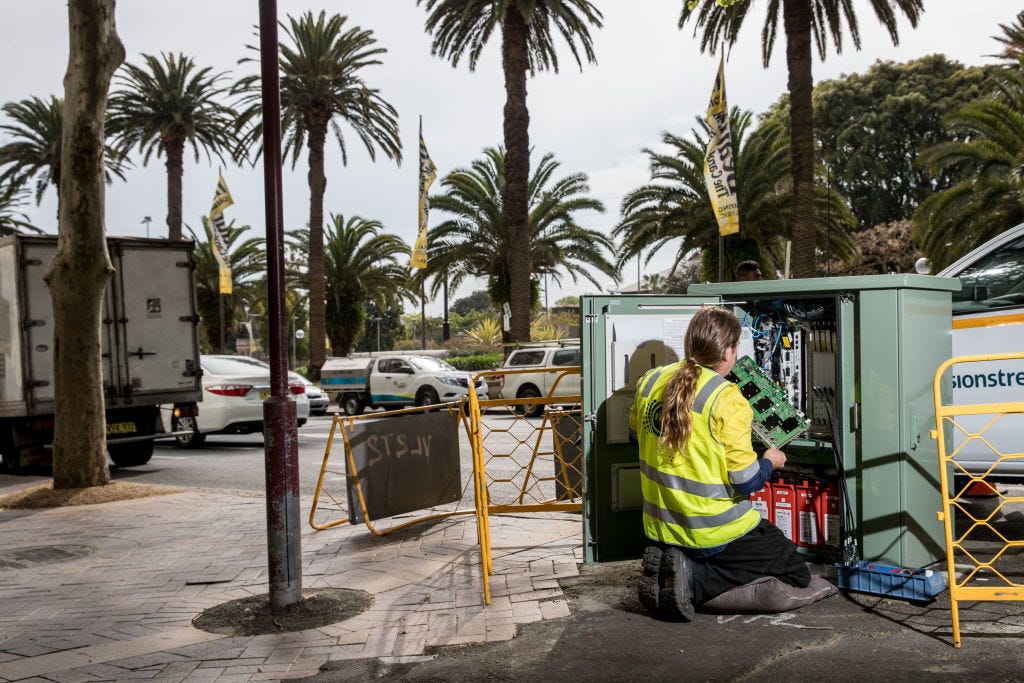
The Australian Competition and Consumer Commission (ACCC) has gone some way to answering the question of what is worse than being on the NBN? When it comes to full fibre, it seems to be other fibre providers.
In the latest instalment of the Measuring Broadband Australia report, NBN-alternative fibre connections sold by Uniti under its LBNCo and OptiComm monikers were included for the first time, albeit with a sample size of only 40 lines.
The report said busy hours download speeds on Uniti were 101.6% of plan speeds while NBN full fibre could hit 103%. It was a similar story for upload speeds with Uniti lines reporting 88% of plan speeds and NBN lines hitting 91%.
Uniti lines also had a higher outage rate, but this was mostly due to a pair of apartments having a high number of outages. As a result, the report said there was an average of 1.75 outages per day, but the error bars stretched between 0.5 and 3 outages. Regardless of where the average lies in that range, it is still higher than NBN’s 0.3 number.
On the positive side for Uniti, the latency measurements were half that of NBN, with Uniti lines having 4.5 milliseconds in all hours, and 4.8 milliseconds in busy times.
Elsewhere in the report, the ACCC was happy to claim credit for boosting download speeds on fixed wireless, with users seeing 80% of plan speeds in busy hours compared to 68% a year ago. The welcome boost is all because the ACCC remains determined to continue testing network speeds at the top of the stack, while NBN itself is a layer 2 provider.
“The improvement in download speeds is due to a change NBN Co made in July 2021, which allowed a 15% overprovisioning allowance on the download component of NBN fixed wireless plans. Some retail providers have passed-on this change to their customers,” the ACCC said.
As for fixed wireless upload speeds, they are heading backwards compared to a year ago with only 49% of speed plans able to be attained, and there is no upstream overprovisioning. The only relief is that last quarter’s upload numbers were slightly worse.
Of the 1,266 boxes used to perform measurements on the report, Aussie Broadband now has the highest number on underperforming lines, which leads to Aussie Broadband looking as though it provides the slowest speeds until those lines are excluded and it is able to jump ahead of Superloop and be equal with Vodafone as second slowest.
With underperforming lines excluded, the fastest ISP is Exetel, followed by Optus, Telstra, MyRepublic, and Launtel.
The ACCC said the number of services incapable of hitting 75% of plan speeds has increased to 13%.
“There are a significant number of consumers on fibre to the node connections that are not performing as well as other network connections,” ACCC Commissioner Anna Brakey said.
“It is disappointing that progress by NBN Co and retailers to improve these connections has stalled.”




















